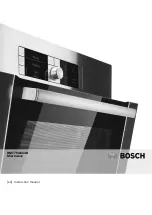
cellent results with your R-122 active ribbon microphone. Unlike
standard ribbon microphones, which depend on a proper imped-
ance match to deliver optimal performance, the input impedance
of your preamplifier will have minimal affect on the R-122’s op-
erational performance because the ribbon element is isolated from
the outside world via the microphone’s electronics package.
Careful consideration should be given to the
quality
of the micro-
phone preamplifier. Studio grade preamplifiers usually sound
much better than cheap ones. Headroom, noise floor, transparency
and coloration are all factors to consider in determining which
preamplifier is suitable for your studio or live sound application.
Other features are usually secondary and fall into the category of
conveniences or interface capabilities (such as digital or optical
outputs). A good preamplifier should sound natural with no sign
of edginess or excessive noise. Vacuum tube preamplifiers sound
warm, yet wonderfully airy and transparent. Do not expect a vac-
uum tube preamplifier to be as quiet as a solid-state preamp, as
electron emissions from tubes tend to convey more “thermal”
noise than transistors. Transformer coupled designs tend to sound
punchy and full-bodied and offer the added benefit of true elec-
tronic isolation. This greatly enhances their ability to interface
with other equipment with minimal noise or hum. There are many
excellent preamplifiers on the market today. Choose one that fits
your budget and offers good performance, but remember that you
get what you pay for. If you have the opportunity to audition one
or more preamplifiers before you buy one, do so. Microphones
and preamplifiers work together like a team and some are just bet-
ter matches than others.
The R-122 active ribbon microphone is capable of substantial out-
put signal, especially if used in conjunction with very loud signal
sources such as guitar amplifiers. It is therefore recommended
that the microphone preamplifier have a switchable pad to prevent
the possibility of overloading the preamplifier’s input stage elec-
tronics. Some preamplifiers are more thoughtfully designed than
others, and a suitable pad will be provided before the active elec-
tronics, not incorporated into a “feedback loop” as some cheaper
8










































